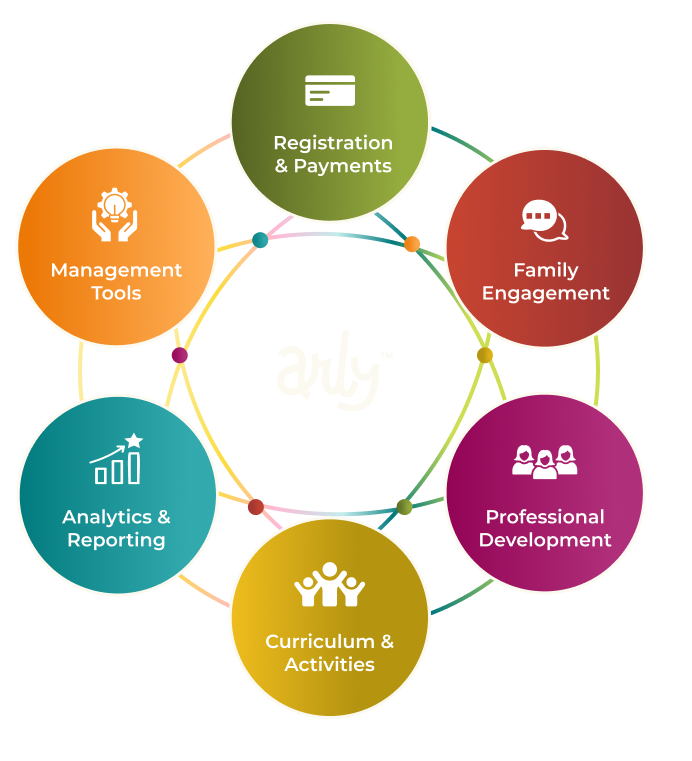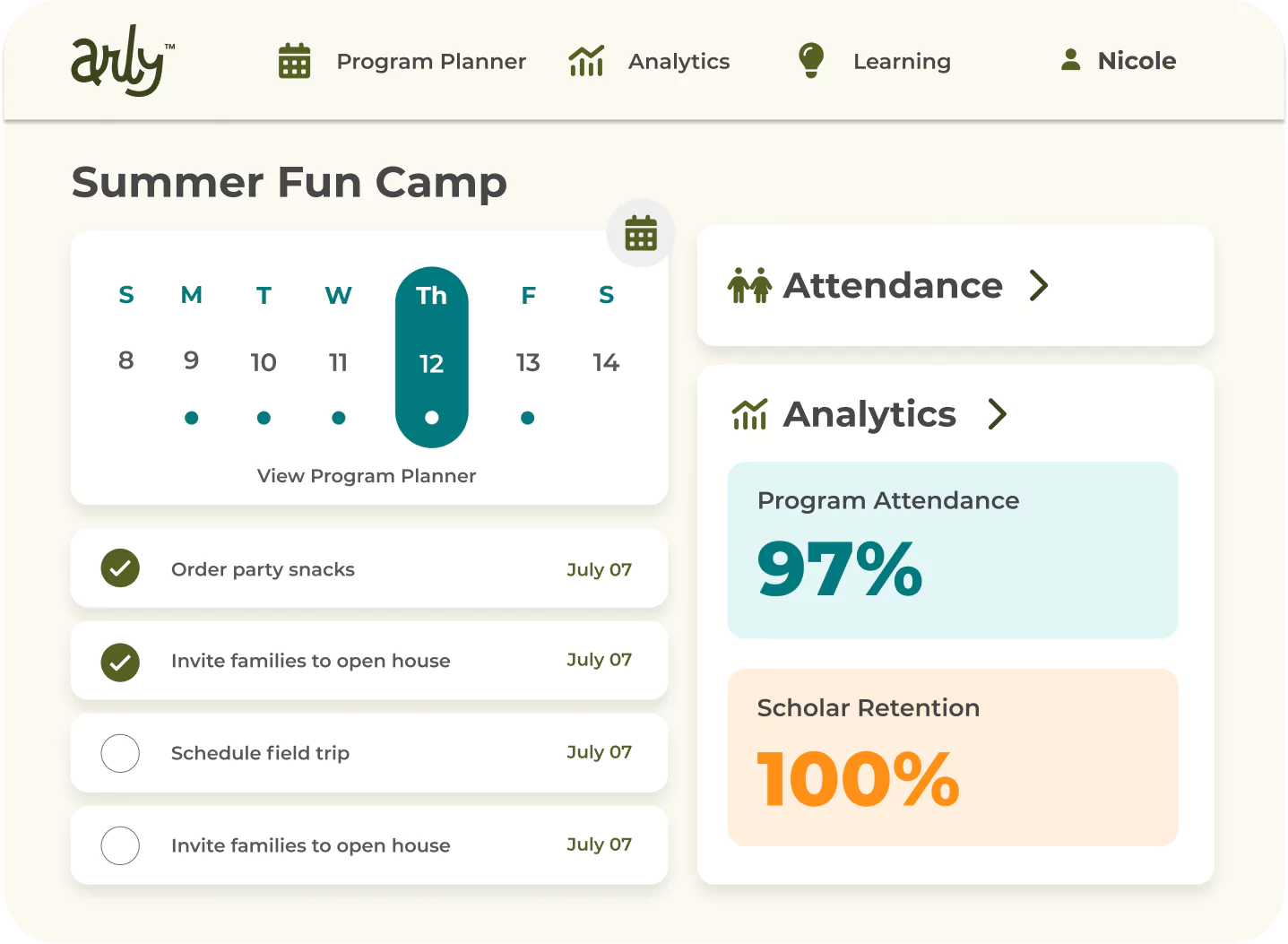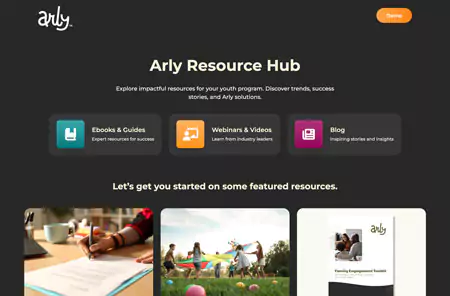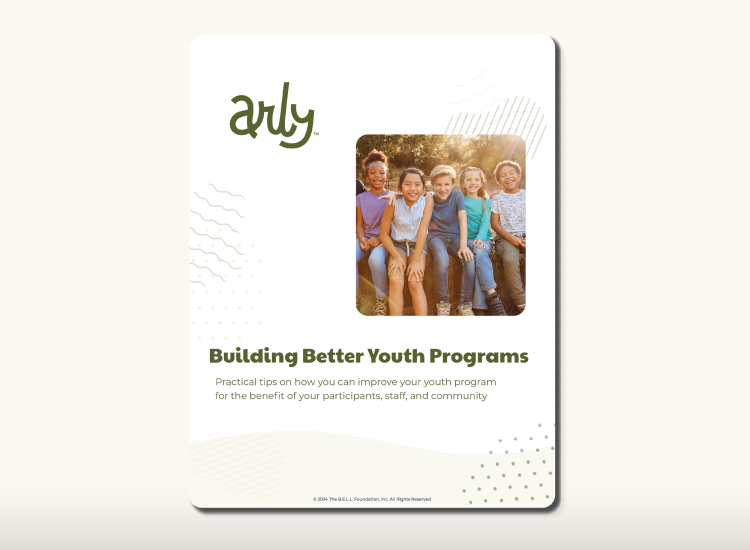Empowering Youth with Essential Life Skills
By Arly Communications on May 20, 2024
As a youth programmer, you can make a lasting impact on kids’ lives by helping them cultivate essential life skills for ongoing personal growth. Learn how to help kids develop core competencies for success that will benefit all aspects of their lives.
What Are Life Skills?
Life skills allow kids to navigate life’s everyday challenges and remain resilient as they overcome obstacles.
These skills include:
-
Decision-making
-
Problem-solving
-
Critical and creative thinking
-
Effective communication
-
Interpersonal relationship skills
-
Self-awareness
-
Empathy
-
Ability to cope with emotions
You likely exercise many—if not all—of these abilities regularly and may take them for granted. However, as with any skill, you had to learn them. For some kids, a youth program may be the primary avenue through which they can practice and develop these real-world readiness skills.
How Can Youth Programs Build Life Skills for Kids?
Building life skills supports the whole child—an important priority for any youth program. How can you realize this goal in your program? Here are four strategies you can implement to help kids practice these vital skills.
1. Prioritize group projects and teamwork.
Having kids work together in groups provides a great opportunity to practice a range of conversation and connection skills. For example, you could give kids a hypothetical problem to solve together. As they work together, in addition to problem-solving, they’ll hone skills such as creative and critical thinking, effective communication, interpersonal skills, and more.
These skills can prepare young people to effectively collaborate with others—a crucial ability that will serve them well as they tackle group projects in college or work with others in a department, committee, or task force in the professional world.
2. Help kids explore their creativity.
If you asked a group of kids whether they see themselves as creative, they would likely answer based on how artistic they believe they are. Art projects can be one fun way to exercise creativity, but it isn’t the only one. Creativity comes in many forms, and you can help all kids foster this skill, regardless of their propensity for artistic expression.
In addition to arts and crafts, you can give kids opportunities to exercise their creativity through theater, storytelling, problem-solving games, and more. Get kids to think outside the box, and they’ll exercise their capacity for creative and critical thinking.
3. Embrace mistakes as a positive part of the process.
Many kids tend to shut down when they feel like they’ve failed at something, but teachers and youth leaders can help them adopt a growth mindset. This mindset recognizes failures not as evidence of inadequacy, but as a springboard for growth.
Turn failures into opportunities to celebrate the very act of trying and work on troubleshooting together to empower rather than discourage kids in these moments. Encouraging kids to embrace mistakes as part of the process can help them learn how to solve problems, cope with their emotions, and maintain a positive attitude.
4. Give kids the tools to understand emotions.
Have you ever felt a sense of relief when you found just the right words to describe what’s going on in your heart or mind? Language is an important means by which we process things, including our emotions. When kids have words to describe what they’re feeling, it can make even the most intense feelings seem a bit more manageable. Labeling emotions can also help kids better relate with one another and show empathy.
According to Bradley Busch, a registered psychologist, “every emotion word you learn is a new tool for future emotional intelligence.” One way you can teach kids these words is to work together to come up with as many emotion words as you can and then have an open discussion about what each word means. You could also have kids act out their emotions through facial expressions or body language.
Build Life Skills for Kids with Help from Arly
Arly shares your passion for equipping kids to succeed, and that’s why we equip youth programmers to succeed! Arly offers enrichment curriculum and professional development to help you enhance the quality of your program and incorporate a greater focus on life skills for kids. Want to learn more? Schedule a demo today!






%20(7).png)

%20(1320%20x%20980%20px)%20(660%20x%20490%20px)%20(600%20x%20350%20px)%20(8).png)
%20(89).png)
%20(14).png)